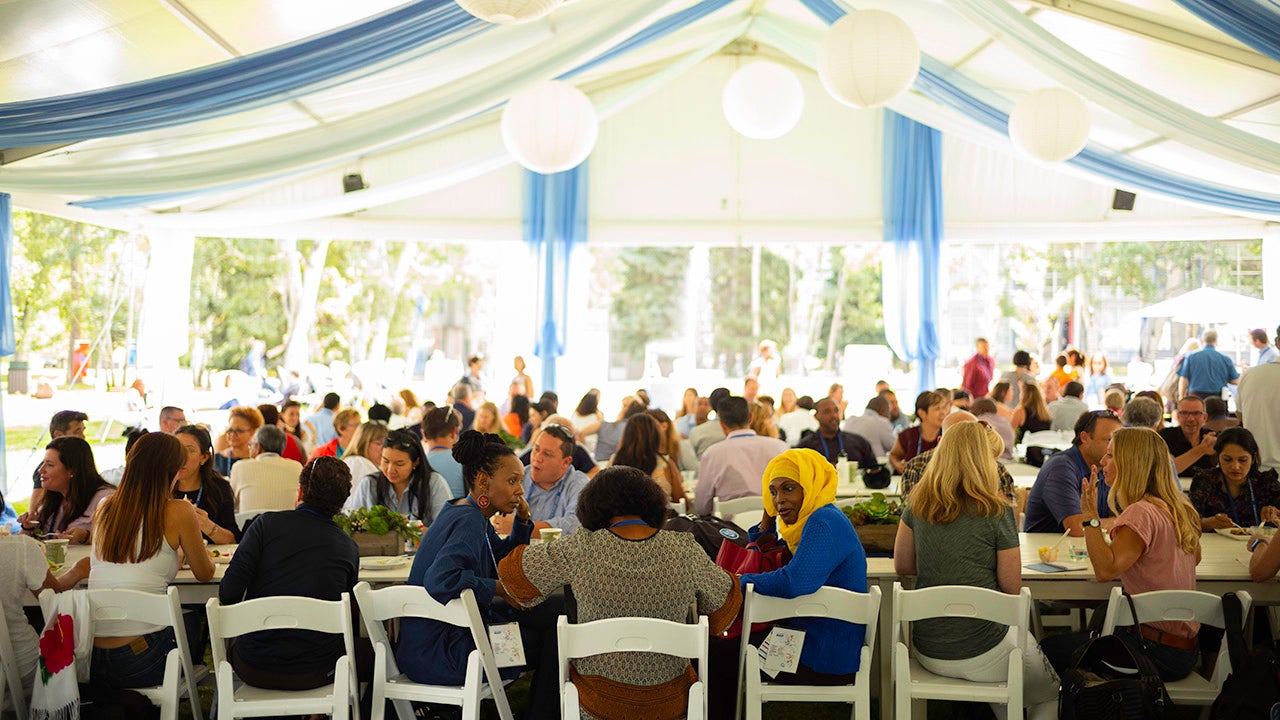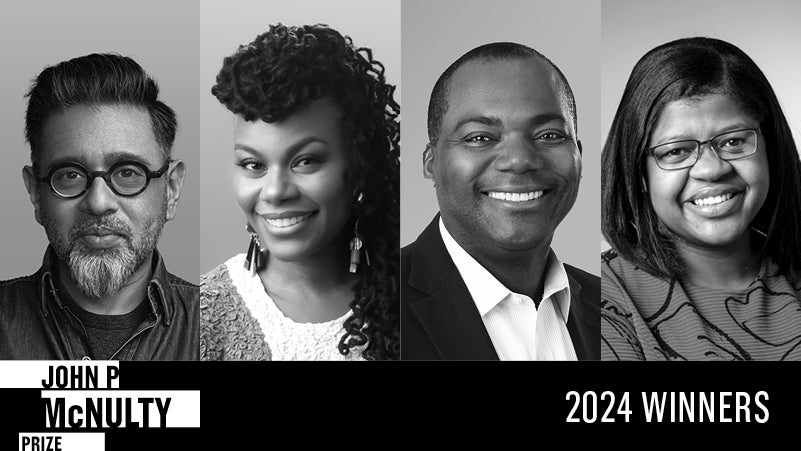The last day of the 2020 Resnick Aspen Action Forum coincided with the anniversary of the historic March on Washington for Jobs and Freedom. Throughout the program, participants carefully reflected on Dr. Martin Luther King Jr.’s call to meet “the fierce urgency of now,” and what it means to be a global citizen. Hildegard Vasquez, a Central America Leadership Initiative Fellow reminded the audience that Dr. King’s call is one that transcends generations.
This is why the Action Forum’s closing plenary session brought together leaders spanning multiple generations, from a 17-year-old youth activist to former U.S. Secretary of State Madeleine Albright. While different in age, each panelist demonstrated an impassioned commitment to confronting society’s greatest injustices through a shared a vision for the world that they would like to leave behind—their love letter to the next generation.
Secretary Albright, an Aspen Institute Trustee, shared the importance of understanding and learning from the tragedies of the past. Albright, who arrived in the United States with her family as a refugee fleeing Nazis and then Soviet oppression, said, “we need to understand the past, but need to look forward.” Now a professor at the Georgetown University School of Foreign Service, Secretary Albright said that she is amazed by the talents of young people who are living through one of the most difficult phases the world has witnessed. She is most inspired by those “who are calm and at the same time determined, and really want to do something for others.”
One of those inspirational young people is Salvador Gómez-Colón, a climate resilience and youth empowerment advocate and the son of a Health Innovators Fellow. Salvador shared his hope for a future sensibility that values consideration over self-interest. He offered a didactic critique of the current leadership. “I think every single leader needs to ask themselves: How are my actions impacting someone else’s tomorrow?” he said. “The reason why we ask this is because leadership is not about one’s self or ego, but others.”
If we want to envision what the world should look like for future generations, the planet must remain habitable. This is the message Kelsey Wirth, a Henry Crown Fellow and co-founder of Mothers Out Front, passionately advocated for. Without this concept as a baseline, the very idea of “future generations” is itself, uncertain. Kelsey’s organization Mothers Out Front is a grassroots initiative of mothers and grandmothers in support of renewable energy. Her love letter to the next generation is for a world where her “children and grandchildren live in a society that is reckoning with its past, how [they] have treated people and nature, and is working with great urgency to create a just and equitable society and a healthier planet.”
The second half of the plenary featured Central America Leadership Initiative Fellow Tanya Mroczek-Amador and Africa Leadership Initiative-East Africa Fellow Hope Azeda. The two shared how pain has helped transform their work. Tanya, the CEO of Corner of Love, told her story. Two years ago, she and her organization had to leave their home in Nicaragua when their humanitarian work was threatened. “I left my heart in Nicaragua,” she said. She has used that pain to help those who are still being affected by the conflict. Corner of Love has set up two refugee centers—one at the Nicaragua border and one in their new headquarters in San Jose, Costa Rica. For Tanya, pain propels her. “If I’m not helping, I can’t breathe. I can’t go forward. I have to be doing something.”
Hope sees pain as one of the schools in her life. As the founder and artistic director of Mashirika Performing Arts, a leading theatre company in Rwanda, she encounters pain daily as she helps young people use art to work through their traumas. Hope shared that she is currently carrying the loss of her mother. She described the pain as a fire in her body that she is tempted to release into the world. She knows that she could let this pain win, but instead she chooses to fight it—for herself and those around her. Hope read a poem from Pierre Alex Jeanty that she wants to pass on to future generations.
“The pain will come,
let it visit,
cry it out,
vent it out,
bleed it out.
And then ask it to leave.
Do not allow it to build a home
and call it broken.
We aren’t meant to be broken forever,
that is punishment to our hearts and minds.”


